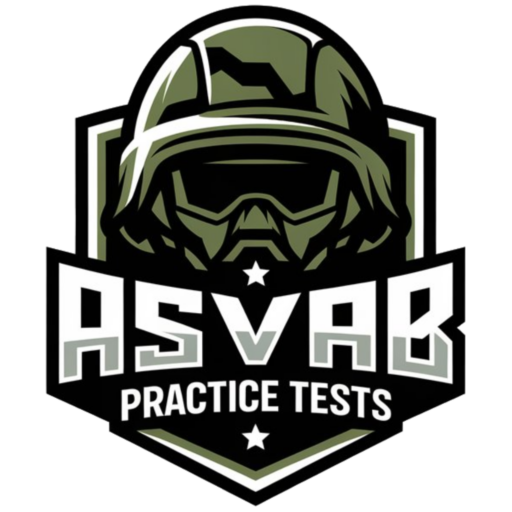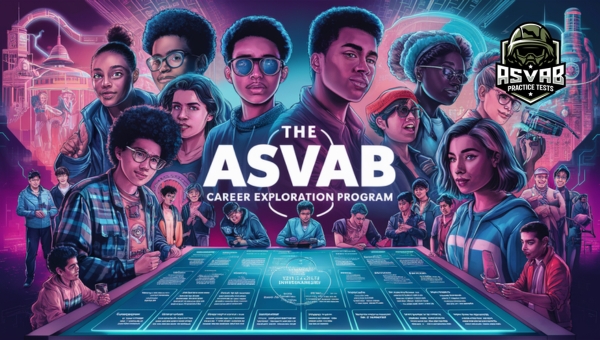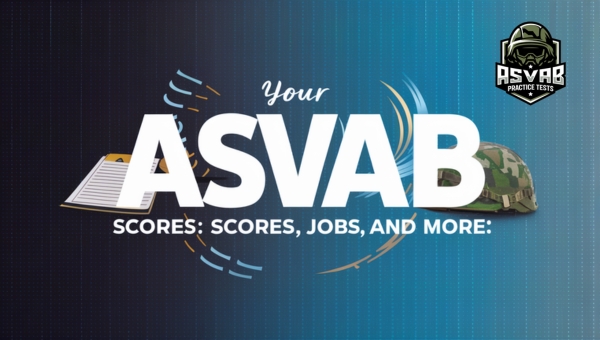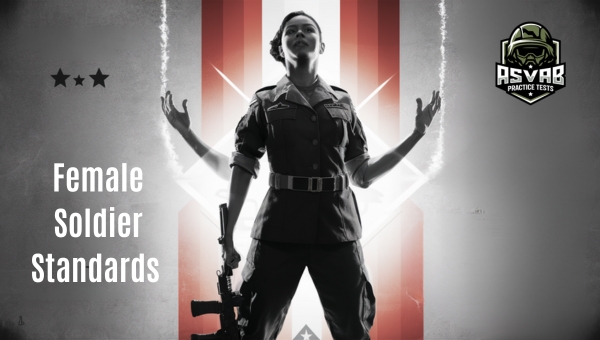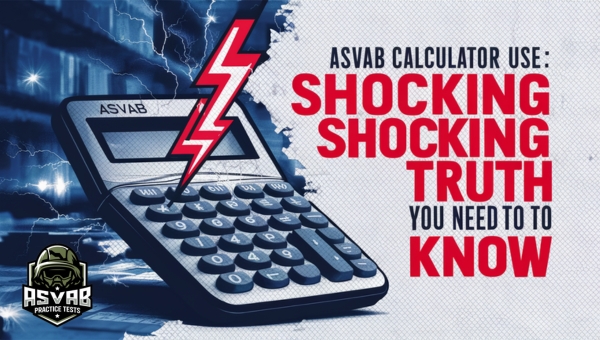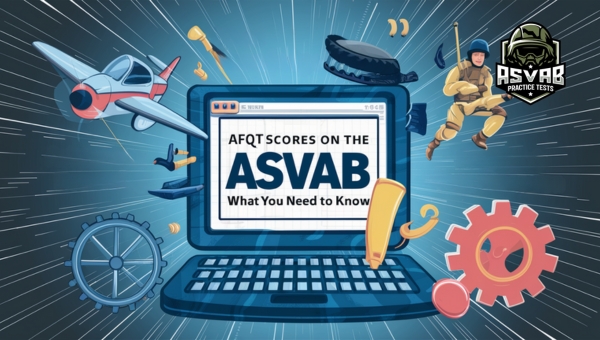ASVAB Study Guides | Master the Test with Proven Strategies

If you’re gearing up for the ASVAB, you’re in the right place. Tackling the ASVAB can be daunting, but with the right approach, it becomes manageable. In this article, we’ll delve into the structure of the ASVAB, discuss effective study guides, and share tips for test-taking success.
Whether you’re looking to understand the scoring system, find the best study materials, or develop a solid study schedule, we’ve got you covered. By the end, you’ll have a comprehensive roadmap to ace the ASVAB and unlock the door to your military career.
Understanding the ASVAB Test
If you’re looking to join the military, the ASVAB test is an essential step in your journey. It assesses your skills and abilities in various areas, helping determine your suitability for different military roles.
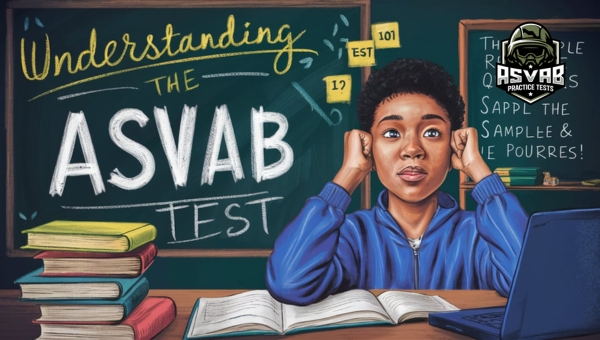
This process can seem overwhelming, but understanding the test’s structure and scoring system can help you prepare effectively. Let’s dive into the specifics of the ASVAB test to make your preparation smoother and more focused.
Structure and Sections of the ASVAB
The ASVAB consists of 10 subtests, each designed to measure specific skills and knowledge. These subtests are:
- General Science (GS): Assesses knowledge of physical and biological sciences, including Earth and space science, physical science, and life science.
- Arithmetic Reasoning (AR): Measures the ability to solve arithmetic word problems that require simple calculations.
- Word Knowledge (WK): Evaluates the ability to understand word meanings and identify synonyms and antonyms.
- Paragraph Comprehension (PC): Tests the ability to comprehend information from several paragraphs of text.
- Mathematics Knowledge (MK): Assesses knowledge of high school math concepts, including algebra and geometry.
- Electronics Information (EI): Measures understanding of electrical circuits, devices, and systems.
- Auto and Shop Information (AS): Evaluates knowledge of automobile systems, terminology, and practices, as well as general shop information.
- Mechanical Comprehension (MC): Assesses understanding of mechanical and physical principles.
- Assembling Objects (AO): Measures spatial ability and the ability to comprehend and remember relationships among objects.
- Verbal Expression (VE): Combines the scores from the Word Knowledge and Paragraph Comprehension subtests to measure overall verbal proficiency.
The ASVAB is administered in a timed format, with each subtest having a specific number of questions and a time limit. The total test time is approximately 3 hours.
Scoring System
The ASVAB uses a unique scoring system that can be a bit complex at first glance. Here’s how it works:
- Standard Scores: Each subtest receives a standard score based on a national sample of test-takers. The average score is set at 50, with most scores falling between 30 and 70.
- AFQT Score: The Armed Forces Qualification Test (AFQT) score is derived from four subtests: Arithmetic Reasoning, Word Knowledge, Paragraph Comprehension, and Mathematics Knowledge. This score determines your overall eligibility to enlist in the military. It is expressed as a percentile, indicating how you performed compared to other test-takers.
- Composite Scores: In addition to the AFQT score, the ASVAB provides composite scores, or “line scores,” which are combinations of various subtest scores. These scores are used to qualify you for specific military jobs. Each branch of the military has its own required composite scores for different roles.
- Qualifying Scores: Each military branch sets its own minimum AFQT score for enlistment. For example, the Army might require a minimum AFQT score of 31, while the Air Force might require a 36. Higher scores can open up more job opportunities and enlistment incentives.
Understanding this scoring system is crucial for setting your goals and knowing what you need to achieve to qualify for your desired branch and role.
Also Read: Marines ASVAB Success – Essential Practice Tests Guide
Effective Study Guides for the ASVAB Test
Preparing for the ASVAB test can be a daunting task, but with the right study guides and resources, you can make this process much smoother. In this section, we’ll delve into some of the most popular and effective study guides, explore valuable online resources, and discuss the importance of practice tests.

Recommended Study Guides
When it comes to ASVAB preparation, having a reliable study guide is crucial. Here are some widely recommended options:
- Kaplan ASVAB Prep Plus: Known for its comprehensive coverage and practice questions, Kaplan’s guide is a favorite among test-takers.
- ASVAB for Dummies: This guide breaks down complex topics into easily digestible sections, making it a great choice for beginners.
- Barron’s ASVAB: Barron offers in-depth reviews of all test sections along with practice tests and tips for improving scores.
Online ASVAB Study Resources
In addition to traditional study guides, there are numerous online resources available to help you prepare for the ASVAB.
These include:
- ASVAB Practice Tests: Websites like ASVAB Practice Test Online offer free practice tests that simulate the real exam.
- Video Tutorials: Platforms like Khan Academy provide video tutorials on various subjects covered in the ASVAB.
- Mobile Apps: Apps such as ASVAB Mastery and ASVAB Practice Test 2023 allow you to study on the go.
Practice Tests Importance
Taking practice tests is a vital part of ASVAB preparation. Here’s why:
- Mimic the Real Test: Practice tests simulate the actual ASVAB, helping you become familiar with the format and types of questions you’ll encounter.
- Time Management: By taking timed practice tests, you can learn to manage your time effectively, ensuring you complete all sections within the allotted time.
- Identify Weak Areas: Practice tests help you pinpoint areas where you need improvement, allowing you to focus your study efforts more effectively.
By incorporating these study guides, online resources, and practice tests into your study routine, you’ll be well on your way to achieving a successful ASVAB score.
Study Tips & Tricks for ASVAB Success
Preparing for the ASVAB test can seem overwhelming, but with the right strategies, you can make your study sessions effective and manageable. Let’s dive into some practical tips that will help you excel in your preparation.

Develop a Study Schedule
Creating a study schedule is crucial for staying organized and ensuring you cover all the sections of the ASVAB test.
Here’s how you can develop an effective study schedule:
- Set Specific Times: Dedicate certain hours of the day solely for ASVAB study. Consistency is key, so try to stick to the same times each day.
- Break Down Sections: Divide your study time by the different sections of the ASVAB, such as Arithmetic Reasoning, Word Knowledge, and Mechanical Comprehension. This ensures comprehensive coverage.
- Use a Calendar: Mark study sessions on a calendar. This visual reminder helps keep you accountable.
- Include Breaks: Incorporate short breaks to avoid burnout. A 10-minute break for every hour of study is a good rule of thumb.
- Adjust as Needed: Be flexible. If you find certain sections more challenging, allocate more time to those areas.
By following these steps, you can create a balanced and effective study plan that enhances your preparation.
Focus on Weak Areas
Identifying and focusing on your weaker areas can significantly improve your overall ASVAB score. Here’s how to tackle your weak spots:
- Assess Your Strengths and Weaknesses: Start by taking a practice test to identify which sections you find most challenging.
- Allocate Extra Time: Dedicate additional study time to these weaker sections. For example, if math is a struggle, spend extra hours on Arithmetic Reasoning and Mathematics Knowledge.
- Seek Help: Use resources like tutors, study groups, or online forums to gain a better understanding of difficult topics.
- Track Progress: Regularly take practice tests to track your improvement in these areas. Adjust your study plan based on your progress.
Focusing on your weaknesses helps you turn them into strengths, boosting your confidence and performance on the actual test.
Use Flashcards for Vocabulary
Mastering vocabulary is essential for the Word Knowledge section of the ASVAB. Flashcards can be a highly effective tool for this purpose:
- Create Flashcards: Write down key vocabulary words on one side of a card and their definitions on the other.
- Use Online Resources: There are many online platforms where you can create and use digital flashcards, making studying on the go easier.
- Regular Review: Go through your flashcards daily. Repetition helps reinforce your memory.
- Mix it Up: Shuffle the flashcards regularly to ensure you’re not just memorizing the order.
- Group Study: Study with a friend or group. Quiz each other using the flashcards to make learning interactive and fun.
Using flashcards can make vocabulary learning more engaging and effective, helping you ace the Word Knowledge section.
Also Read: Navy ASVAB Practice Test: Ace Your Exam with Confidence
Test-Taking Strategies for the ASVAB
Navigating the ASVAB test requires more than just knowledge; it demands effective strategies to maximize your performance. Let’s delve into some key techniques to help you excel.
Organizing Your Time for the ASVAB
Managing your time effectively during the ASVAB is crucial to answering as many questions as possible without rushing.
Here are some strategies to help:
- Prioritize Questions: Start with the questions you find easiest. This will boost your confidence and ensure you secure those points early on.
- Set a Pace: Divide the total time by the number of questions to get a rough idea of how much time you can spend on each question. Keep an eye on the clock and try to stick to this pace.
- Skip and Return: If you encounter a particularly challenging question, skip it and move on. Return to it later if time permits. This prevents you from getting stuck and wasting valuable time.
- Practice with Timers: During your study sessions, use a timer to simulate test conditions. This will help you get accustomed to the pacing and improve your time management skills.
Elimination Process
The process of elimination is a powerful tool for tackling multiple-choice questions. Here’s how to effectively use it:
- Read Carefully: Ensure you understand the question before looking at the answer choices. This prevents confusion and helps you focus on relevant details.
- Eliminate Wrong Answers: Identify and eliminate options that are clearly incorrect. This increases your chances of selecting the correct answer from the remaining choices.
- Look for Clues: Sometimes, the wording of the question or the answer choices can provide hints. Pay attention to qualifiers like “always,” “never,” “all,” or “none,” which can help you narrow down your options.
- Make an Educated Guess: If you’re unsure after eliminating some choices, make an educated guess. It’s better to guess than to leave a question unanswered, as there is no penalty for guessing.
Stay Calm and Focused
Staying calm and focused during the ASVAB is essential for optimal performance. Here are techniques to help you manage anxiety and maintain concentration:
- Deep Breathing: Practice deep breathing exercises to calm your nerves. Inhale deeply through your nose, hold for a few seconds, and exhale slowly through your mouth. Repeat as needed.
- Positive Visualization: Picture yourself succeeding and confidently answering questions. This can boost your self-esteem and reduce anxiety.
- Stay Present: Focus on one question at a time and avoid thinking about previous questions or future sections. This helps you stay grounded and reduces stress.
- Take Breaks: If permitted, use breaks to relax and clear your mind. Stretching or a brief walk can help rejuvenate you for the remainder of the test.
By incorporating these strategies, you can approach the ASVAB with confidence and improve your chances of achieving a higher score.
FAQs
How long should I study for the ASVAB?
It’s recommended to study for at least 1-2 months, dedicating a few hours each day. Consistency is key to covering all sections effectively.
What happens if I don’t pass the ASVAB?
If you don’t pass the ASVAB, you can retake the test. However, there are waiting periods between attempts, so it’s best to prepare thoroughly before retaking it.
Can I study for the ASVAB on my own?
Yes, you can study for the ASVAB on your own using various study guides, online resources, and practice tests. Self-study can be effective with the right materials and a structured schedule.
Conclusion
Preparing for the ASVAB doesn’t have to be overwhelming. By understanding the test structure, utilizing effective study guides, and implementing strategic study and test-taking techniques, you can maximize your chances of success.
Remember to focus on your weak areas, take practice tests, and stay calm during the exam. Consistency and dedication are key to achieving a high score on the ASVAB.
For more tips and resources on ASVAB preparation, be sure to explore other informative articles on our site. Happy studying!
